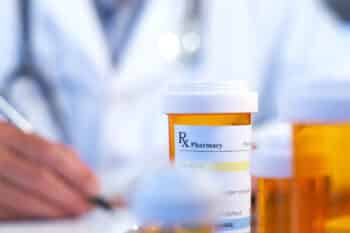Medication-Assisted Treatment For Opioid Addiction

What Is Medication-Assisted Treatment?
Medication-assisted treatment (MAT) offers a comprehensive approach to treat Opioid addiction, ensuring a higher chance of long-term recovery. Designed to holistically treat Opioid addiction, MAT creates a supportive environment for individuals to rebuild and reclaim their lives.
Medication-assisted treatment is a combination of behavioral therapy and medications to treat substance use disorders, particularly those related to Opioids like Heroin, prescription painkillers, and Fentanyl. It doesn’t merely replace one drug for another; instead, it stabilizes the body, reduces withdrawal symptoms, and allows the person to engage more effectively in treatment and daily life.
How Does MAT Work?
MAT works by addressing both the physical and psychological aspects of Opioid addiction. The medications used in MAT act on the same brain receptors as the addictive Opioids but do so in a safer, controlled manner. By doing this, they can:
• Reduce cravings for the drug.
• Ease withdrawal symptoms.
• Protect against overdose.
Alongside medication, therapy is employed to help individuals address the root causes of their addiction and equip them with the tools to achieve and maintain sobriety.
Benefits Of Medication-Assisted Treatment
The benefits of MAT are multifaceted, underscoring its significance in addressing Opioid addiction. First and foremost, MAT has been consistently linked to improved patient survival rates. By providing a controlled, medically supervised approach to combatting addiction, MAT decreases the risk of fatal overdoses and helps ensure a safer detoxification process.
Additionally, retention rates in treatment programs are significantly higher for individuals undergoing MAT compared to those without this assistance. This extended engagement in treatment often translates to more comprehensive healing and a higher likelihood of sustained recovery.
Furthermore, by reducing the cravings and illicit drug use associated with Opioid addiction, MAT has demonstrated its potential in decreasing the transmission rates of infectious diseases such as HIV and hepatitis C. This benefit not only improves individual health but also contributes to broader public health outcomes.
In essence, the benefits of MAT extend beyond the individual to foster healthier families, safer communities, and a stronger societal fabric.
Medication Used In MAT
There are three primary medications approved by the U.S. Food and Drug Administration (FDA) for the treatment of Opioid use disorders:
- Methadone: Methadone is a long-acting Opioid agonist. It reduces cravings and withdrawal symptoms without producing the euphoria associated with Opioid abuse.
- Buprenorphine: Buprenorphine is a partial Opioid agonist that can both activate and block brain Opioid receptors. It reduces cravings and has a ceiling effect, meaning its effects plateau at a certain dose, reducing the risk of misuse.
- Naltrexone: Naltrexone blocks Opioid receptors, preventing Opioids from having any effect. It’s especially useful for those who’ve already detoxed and aims to prevent relapse.
Who Should Consider MAT?
Anyone struggling with an Opioid addiction should consider MAT as a treatment option. It’s crucial, however, to consult with a healthcare provider to determine if MAT is right for you or your loved one. Everyone’s journey to recovery is unique, and MAT can be tailored to individual needs, making it a versatile and effective approach.
Pregnant Individuals And MAT
Lastly, for pregnant people battling substance use disorders, MAT offers an essential benefit: improved birth outcomes. Pregnant individuals on MAT have shown reduced chances of premature birth and other complications, leading to healthier neonatal outcomes.
For pregnant individuals facing Opioid addiction, MAT offers a specialized treatment approach. Opioid use during pregnancy can lead to a range of complications, including neonatal abstinence syndrome, where the baby experiences withdrawal post-birth. MAT, especially when using Buprenorphine, has been shown to reduce the severity of this syndrome and improve outcomes for both the mother and the baby. It’s imperative for pregnant individuals to work closely with clinicians who can guide and monitor the treatment, ensuring the safety and well-being of both the mother and the child. MAT not only addresses the addiction but also focuses on the overall health of the pregnant individual, providing comprehensive prenatal care and postnatal support.
Get Help For Opioid Addiction
In facing the life-altering challenge of Opioid addiction, taking the step towards treatment is a sign of strength and hope. Treatment, especially approaches like MAT, offers a path forward.
Contact a treatment provider today to explore your therapy options and start on the route towards healing and recovery.